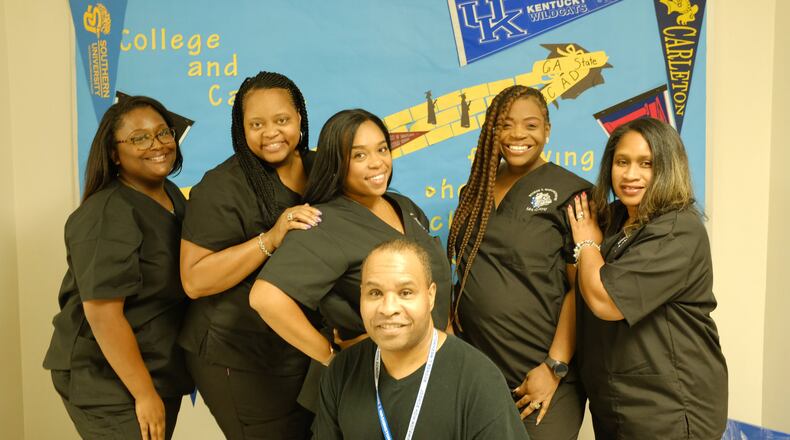Want to feel a bit better about your to-do list?
Hang out for a day with a school counselor.
Maybe you think you know what they do because you remember meeting them in their office, surrounded by SAT and ACT test prep books and helping with class schedules.
“Today’s school counselor is not the guidance counselor of yesterday,” said Jill Cook, assistant director of the American School Counselor Association, in a September interview.
The workload can vary by school, but can include coaching students about making good decisions, working on skills they need to get a job, clerical paperwork, and talking to students who are dealing with suicidal thoughts, anxiety, depression and problems at home.
There's the college advising, of course, but also helping students realize there are other opportunities after high school, such as joining the military, learning a trade or pursuing an internship.
One only has to walk into the counseling offices of Washington High School in Atlanta to banish any outdated notions about the job.
There are the expected parts: transcripts and advising. The counselors help organize bus tours to take students to visit out-of-state college campuses they wouldn’t otherwise get to see.
But there’s also the social and emotional support they provide: the early morning call from a student whose ride to a summer college-readiness program suddenly fell through.
There’s the concern they show for the student who was with his grandmother, his guardian, when she died. He checked her pulse, called 911 and still managed to get to school that morning.
“We are pulled in all type of directions. You never know how your day is going to be when you walk through the doors, because you may have a child who just probably … left a shelter, probably didn’t eat … They will come and see you and tell you their issues,” said Keala Cooper, an Atlanta Public Schools counselor, earlier this school year.
An additional emphasis has been placed on counseling services in the wake of mass school shootings.
Governor-elect Brian Kemp promised during his campaign to work to make schools safer. Part of his plan is to fund a "support counselor" for every high school. The person would be trained, he said, to address mental health issues including bullying and other problems.
Cook said school tragedies have drawn more attention to counselors, who work alongside school nurses, social workers and psychologists to provide tiered support to students who face a varying intensity of needs.
Even with the increased focus, experts say there are not enough counselors in many schools.
The national kindergarten-through-12th grade average is one counselor for every 464 students, though the recommendation is one for every 250. Georgia averages one counselor for 476 students.
At Washington High School, counselors say they feel compelled to go the extra mile for their students, many of whom they say show so much grit in surmounting daily obstacles.
The reward, counselors said, is when years after students graduate, they return to school to tell their counselor that they finished their college degree.
About the Author
Keep Reading
The Latest
Featured


